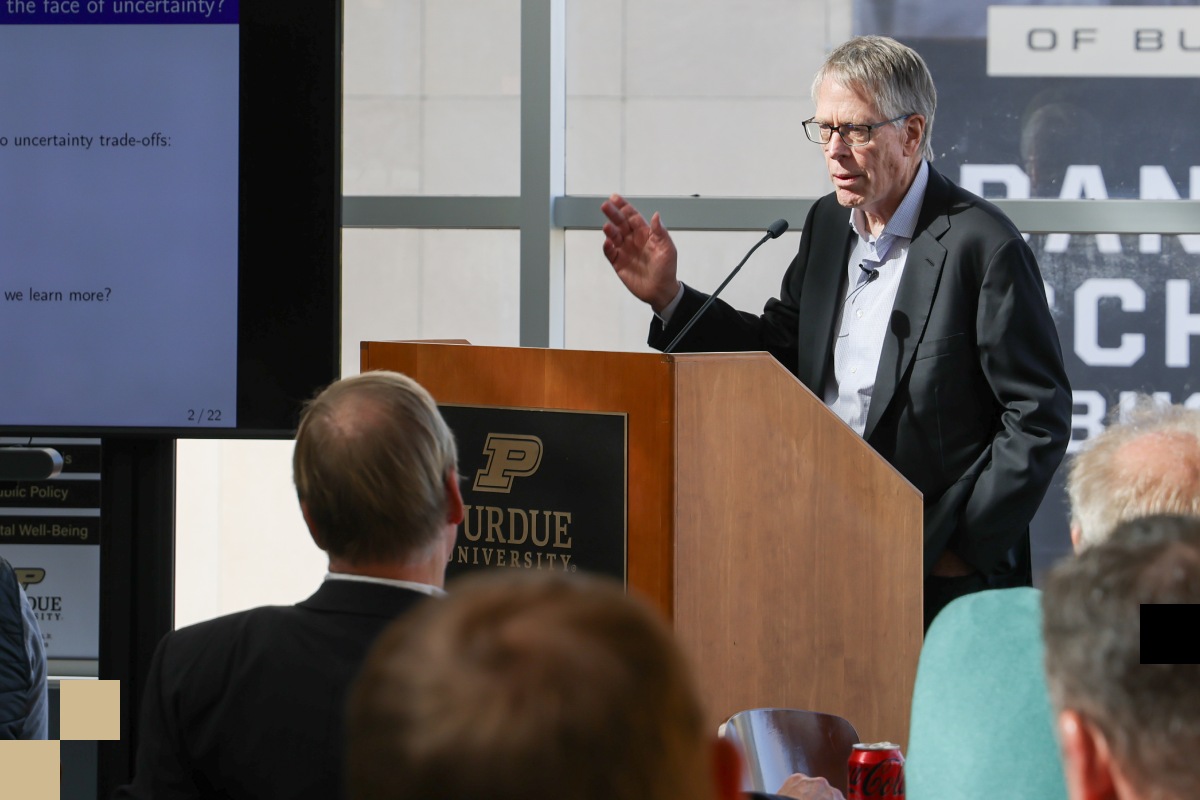
10-23-2024
Put too many parameters on a model and it’s no longer realistic. Too few parameters, and it doesn’t predict anything, contends the University of Chicago’s Lars Peter Hansen.
The Nobel laureate in economics sciences sat down with Purdue President Mung Chiang on October 17 for a wide-ranging Presidential Lecture Series conversation. The two delved into the role of uncertainty in economic decision-making; the roles of government and private sector in fostering technological innovation; simplicity versus complexity in economic modeling, and more.
Hansen emphasized the importance of incorporating uncertainty into economic models and policy discussions. By acknowledging that we cannot always have precise probabilities, he advocated for using robust methods that account for potential unknowns. This allows decision-makers to develop strategies that remain viable under a range of possible outcomes, thus fostering resilience in both public and private sector planning. His critique of modern policymaking, which often ignores the long-term risks of debt and climate change, highlights the need for more prudent and forward-thinking approaches.
“We’re not trying to figure out what’s rational. We’re trying to figure out what’s prudent,” Hansen said.
Chiang and Hansen discussed the ongoing debate between simplicity and complexity in economic modeling, noting that while simple models can provide robustness, they may not always be sufficient when dealing with complex economic realities. Hansen warned against over-reliance on overly complex models, which can obscure key insights and make decision-making more difficult. He advocated for using models that balance simplicity with the ability to handle complexity, ensuring that decision-makers are equipped to navigate the inherent uncertainties in economic forecasting and policy development.
In addition to participating in the Presidential Lecture Series, Hansen spoke to a Daniels School class and met with faculty, business school leadership, and PhD students. He also was a special guest speaker at the Purdue University Research Center in Economics’ economic policy luncheon. View this presentation, held in the Daniels School’s Rawls Hall the afternoon of October 16.